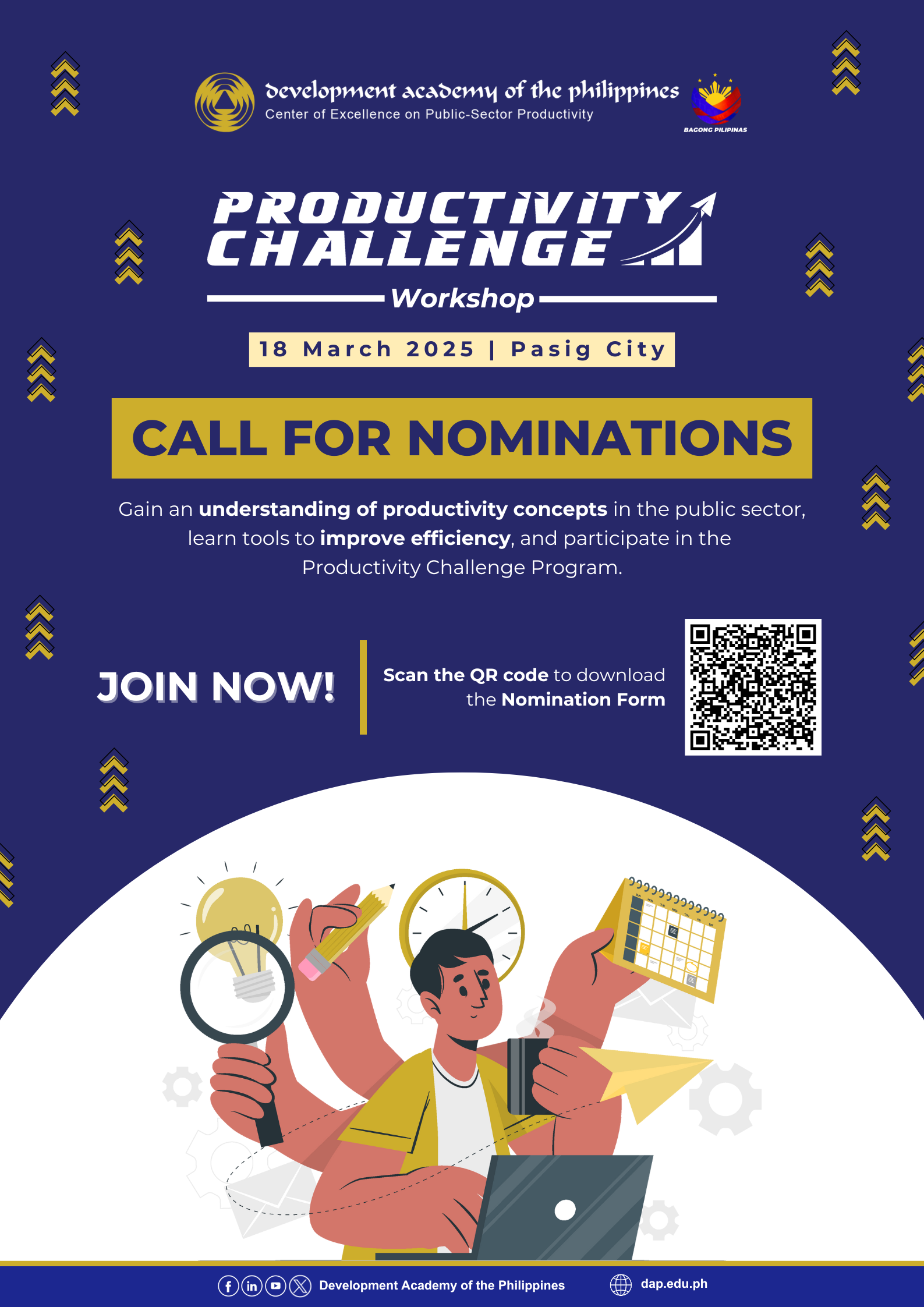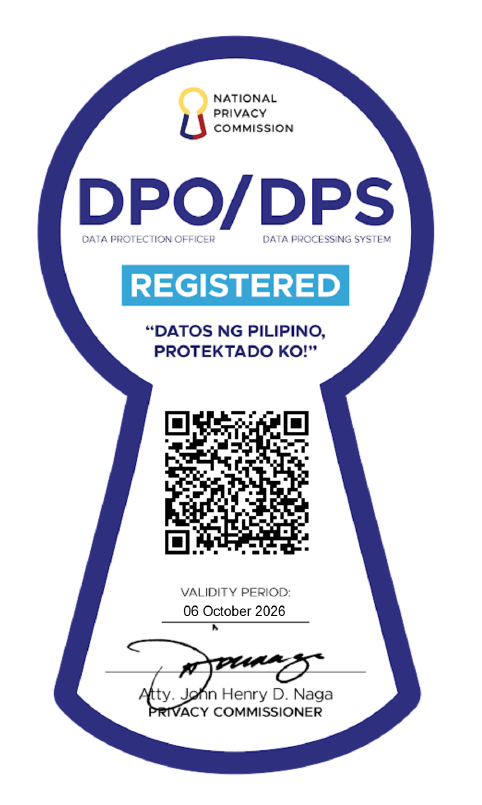The Development Academy of the Philippines (DAP), through its Productivity and Development Center (PDC), joined two technical working groups (TWG) convened by the Anti-Red Tape Authority (ARTA) to support the institutionalization of key elements of the Republic Act 11032 or an Act Promoting Ease of Doing Business and Efficient Delivery of Government Services. The ARTA invited the DAP for its technical expertise in conducting research, assessment, and capacity-building interventions for regulatory reform to support its efforts to establish good regulatory practices, aimed at the efficient turnaround of government services, as per R.A. 11032.
The DAP has been a member of the TWG for the harmonization of a client satisfaction measurement (CSM) since October 2021. The CSM is a survey tool that the ARTA aims to use as a single feedback mechanism that government agencies or local government units (LGUs) can use to measure the satisfaction of the transacting public when they avail of any service. The DAP also submitted to the ARTA its proposed survey questions to support the TWG’s harmonized CSM tool which measures satisfaction across service quality dimensions. The harmonized CSM questionnaire and guidelines were based on findings from the national Citizen Satisfaction and Business Satisfaction surveys conducted by DAP-PDC since 2018 and inputs from other agencies and are set for finalization and pilot implementation in 2022.
Likewise, the DAP joined the TWG for the establishment of the Philippine Ease of Doing Business and Efficient Government Service Delivery Reporting System or “Philippine EODB Reporting System” that the ARTA convened in September 2021. The Philippine EODB Reporting System aims to design a localized methodology of the World Bank’s Doing Business Report that is applicable in the Philippine context in assessing the ease of doing business in the country in terms of regulatory quality and service efficiency.
The DAP’s participation in these two ARTA-convened TWGs is aligned with its flagship programs, Government Quality Management Program-Institutionalizing Service Quality Standards (SQS) and the Modernizing Government Regulations Program (MGRP). The SQS was designed to determine the minimum service standards to enable agencies to focus on improving areas of frontline service design and delivery that the citizens consider important. On the other hand, the MGRP is a comprehensive regulatory reform program that seeks to enhance regulatory agencies’ capability to develop smart regulations and improve doing business.
Meanwhile, the Joint Memorandum Circular on the Establishment of the PH EODB Reporting System was launched on 07 February 2022 where DAP President and CEO, Atty. Engelbert C. Caronan, Jr., underscored the “steadfast commitment of the ARTA and the participating agencies to promote a sound regulatory environment and efficient and transparent delivery of government services.” This is consistent with the objectives of the MGRP to improve coherence and quality of regulations as well as to promote effective regulatory reform in response to delivering government services that are accessible, convenient, pleasant, and responsive to the needs of the transacting public.
The DAP, as the National Productivity Organization, seeks to empower leaders, strengthen institutions, and build the nation through pioneering, value-adding, synergistic ideas, concepts, principles, techniques, and technologies addressing development problems of local, national, and international significance. The DAP-PDC offers capability building, technical assistance, and research related to productivity and quality improvement. For more information, visit www.dap.edu.ph and http://pdc.dap.edu.ph/ or email at pdc.pdro@dap.edu.ph.
Iremae D. Labucay




